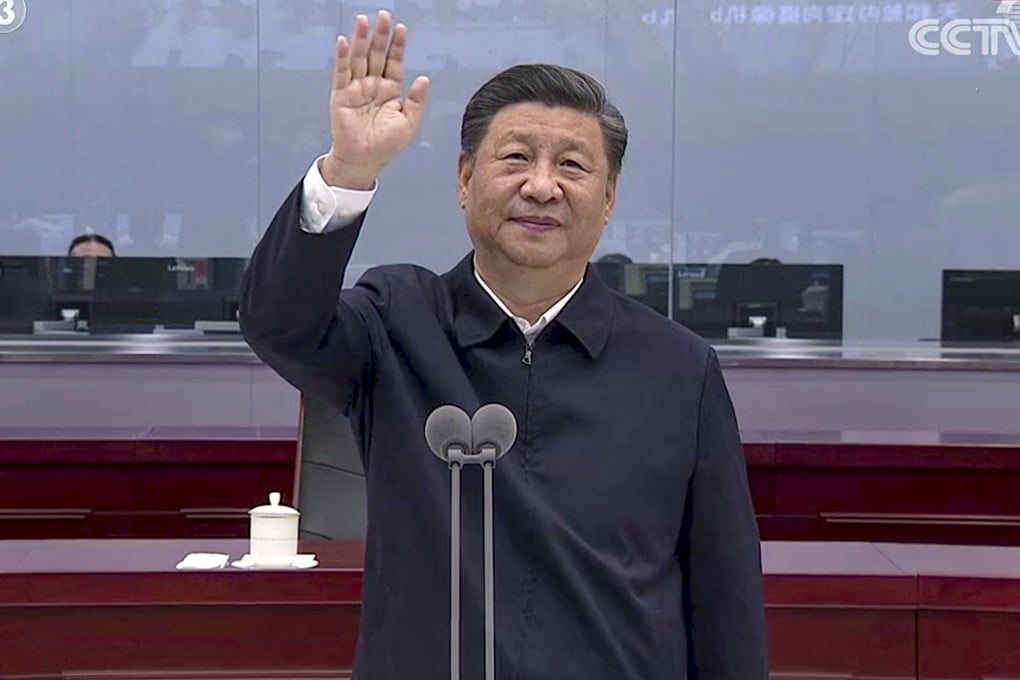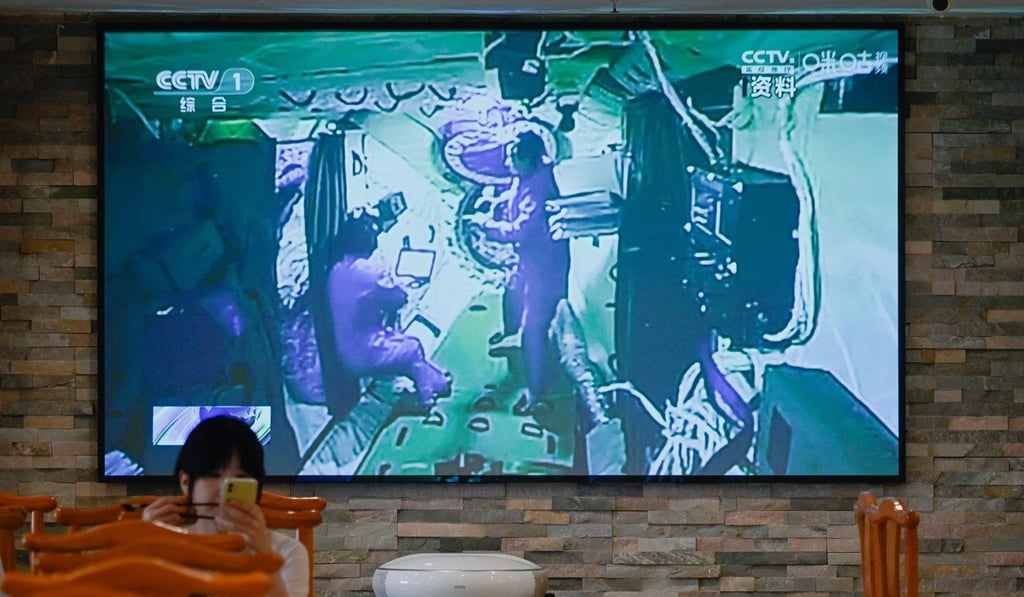Xi Jinping hails China space station astronauts in long-distance call
- Congratulations for three-man crew raises mission’s profile ahead of Communist Party centenary
- In contrast to 2016 mission to the station predecessor, Tiangong-2 space lab, the crew must manage a much larger facility, including its robotic arm

Xi thanked the three astronauts for their work in space on Wednesday morning, in a five-minute call reflecting the importance of the country’s space exploration project to the Chinese leadership.

01:48
President Xi Jinping congratulates China space station astronauts
“You will spend three months in space and, while in space, your work and your life there will be in the hearts of the Chinese public,” he said. “Establishing our own space station is an important milestone and a significant contribution to humankind’s peaceful use of space.”
The three astronauts, flanked on either side by the Chinese flag and Communist Party flag, saluted Xi and thanked the country for its support. All three are party members.
China’s recent achievements in this highly symbolic field of scientific and technological exploration come as the party steps up celebrations to mark its centennial next Thursday.

The political significance of the landing was not lost on the astronauts in space. Veteran crew commander and long-time party member Nie Haisheng told a press conference last week before blast-off that China’s space exploration programme had “added a heroic chapter to the 100-year history of struggle of the party”.